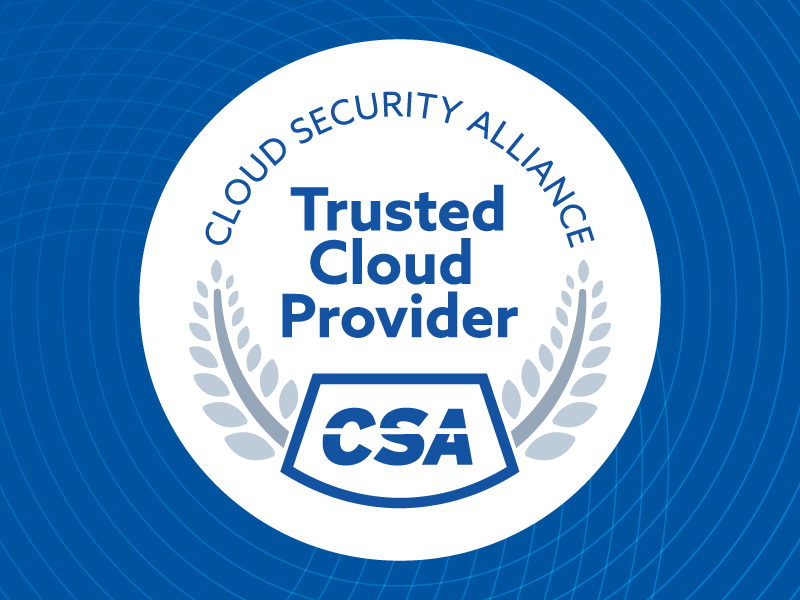Betting on the Bank: Why People Trust Banks with Their Data
Published 09/25/2024
Written by Anastasios Arampatzis.
Building and maintaining trust in data handling practices is critical for businesses in every industry. Trust is the foundation of long-lasting relationships between companies and consumers, directly impacting consumer loyalty, brand reputation, and, ultimately, business success.
Unfortunately, a host of high-profile data breaches over the past few years have eroded consumer trust. Billions of records were exposed in these breaches, and even consumers not directly impacted paid careful attention to how the affected organizations responded to these incidents. Customers have become far more circumspect about the types of data they share and with whom, and the stakes have never been higher for companies that handle consumer data.
Recent research revealed that when it comes to the types of industries customers are most comfortable sharing their data with, banking is number one with 44%, followed by healthcare with 41%. Conversely, the report highlighted how customers are the least comfortable sharing their information with logistics companies (5%) and social media platforms (6%). However, while banking is on a higher pedestal, less than 50% of consumers fully trust the bank with their data—most are compelled to provide it. Building consent and empowering the customer needs to be part of the onboarding process—from the get-go. It is that subtle touch that makes a customer trust a bank, not mere compulsion to share their data.
It’s clear that some industries enjoy a higher level of customer confidence in data handling than others; the question is, why?
Fluidity in Comfort Level
Consumer comfort levels in sharing personal information are not static; they're influenced by a multitude of factors that differ across sectors. The same research showed that 89% would consent for organizations to use their data – but only if specific criteria are met.
Regulatory frameworks have a clear role to play in shaping consumer trust. Sectors with harsher regulations governing data privacy and security, such as banking, enjoy higher levels of confidence from consumers.
Regulations such as the GDPR, HIPAA, CCPA, APRA, and the APEC Privacy Framework establish standards for data handling practices. They have enforcement mechanisms in place and impose penalties on those found to have been non-compliant. These regulations compel businesses to prioritize consumer privacy, and doing so signals to consumers that their data is being handled responsibly, fostering trust.
On the other hand, social media platforms have faced intense scrutiny over their data handling practices, including instances of data breaches and egregious misuse of users’ data. The business model of any social media entity depends heavily on profiling and targeted advertising based on user data, and this has eroded trust among users. With these concerns about privacy invasion and the commodification of personal information, it is easy to see why people are uncomfortable sharing their data.
Is Sharing Personal Data Necessary?
Another factor influencing which sectors consumers are willing to share their data with is the perceived necessity of sharing personal data. The clearer the value proposition and necessity of data collection, the more comfortable consumers will likely be.
So, consumers are more willing to provide their information in sectors like banking, where sharing personal data is essential for accessing services and receiving personalized assistance – and also from an identity verification perspective, given that there is actual money movement involved. Conversely, logistics companies deal, for the most part, with shipping and delivery services. While they may collect data for tracking purposes, customers often find the need for such extensive data collection to be intrusive. Moreover, logistics and freight forwarder companies, are extremely popular with fraudsters who frequently mimic these entities to trick people into unwillingly disclosing their personal information.
Similarly, in sectors like entertainment and media, where data collection may be considered unnecessary for the core service provided, users are again more wary about sharing their information.
Shedding Light on Data Use
Another factor that influences customers’ comfort in sharing their data is transparency. Consumer trust is built and maintained when companies are transparent about their data handling practices. Industries like financial services prioritizing transparency by clearly communicating their data collection practices, purposes, and usage policies are more likely to earn customer trust.
Transparency lets consumers make informed decisions about sharing personal data and gives them a sense of control. On the other hand, any ambiguity in data handling practices can lead to suspicion and mistrust.
This was mirrored by the survey, as a staggering 87% of consumers also expect basic levels of data privacy to be met, including being informed that their data is being collected (55%), and more than half (53%) want the right to have that data erased.
Oops, I Did It Again!
Any past incidents of data misuse or security incidents (particularly more than one) can also have a lasting effect on customer confidence. Data breaches, instances of unauthorized access, or misuse of personal information by businesses can undermine consumer trust in a sector's data handling practices.
A lack of proper communication increases trust erosion, too. When companies play hide and seek or revert to stereotypical responses like “we take your privacy seriously,” trust is seriously damaged.
Consumers have become vigilant about how their data is used and protected, and any company they believe is guilty of mishandling data will not be trusted. Sectors with a history of data breaches or misuse may face an uphill battle in rebuilding trust and regaining consumer confidence.
A slew of factors have influenced how comfortable people are in sharing personal information. It varies significantly across sectors, impacted by factors such as regulatory frameworks, perceived necessity, transparency, and past incidents of data misuse. These factors highlight how trust should be seen as something that needs to be built and is not absolute.
Building and maintaining trust in data handling practices is critical for businesses across all sectors if they want to develop positive relationships with their customers and uphold their commitments to data privacy and security.
About the Author
Anastasios Arampatzis is a retired Hellenic Air Force officer with over 20 years of experience in managing IT projects and evaluating cybersecurity. During his service in the Armed Forces, he was assigned to various key positions in national, NATO, and EU headquarters and has been honored by numerous high-ranking officers for his expertise and professionalism. He was nominated as a certified NATO evaluator for information security.
Unlock Cloud Security Insights
Subscribe to our newsletter for the latest expert trends and updates
Related Articles:
Offboarding Under Pressure: How to Keep SaaS and AI Data Secure During Layoffs
Published: 02/10/2026







.jpeg)

